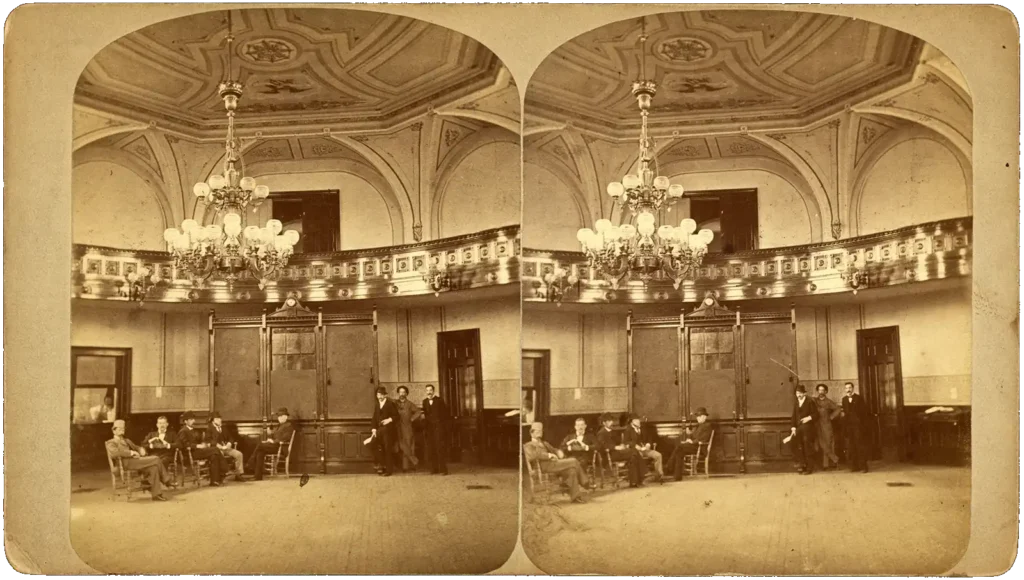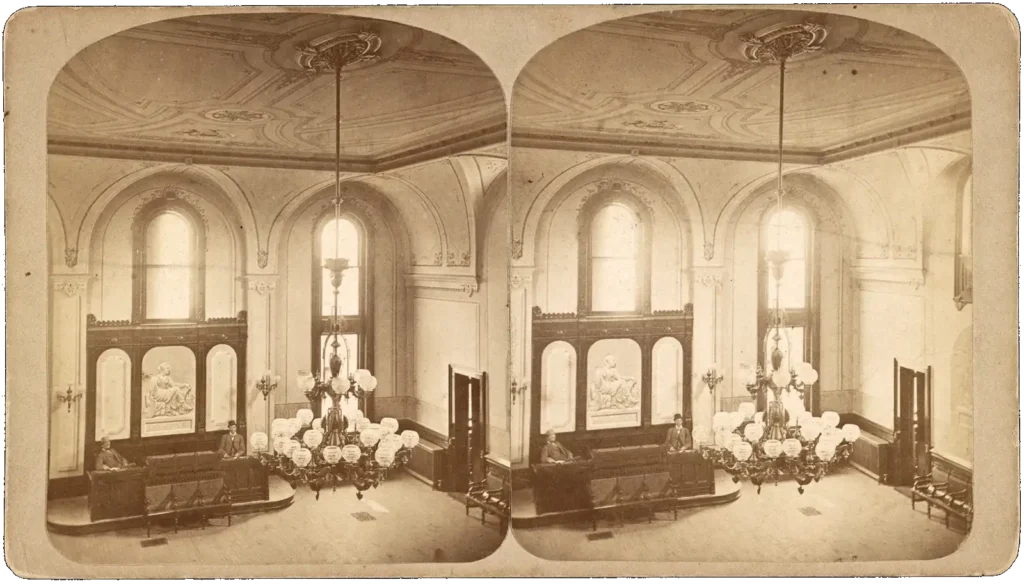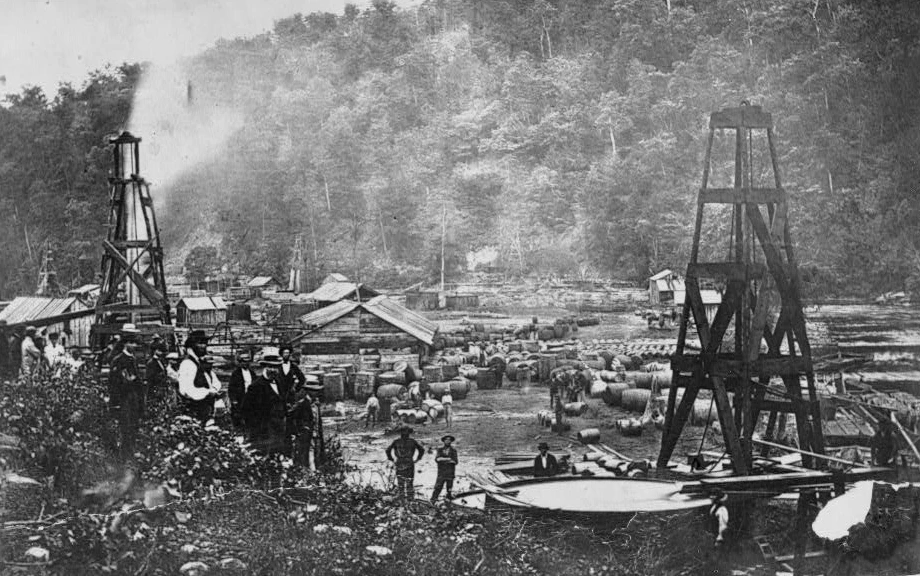Bradford Oil Exchange
The Dedication of the New Building Yesterday — Interesting Exercises
Buffalo Express (New York), February 13, 1879

The new building of the Bradford Oil Exchange, which has already been described in The Express, was dedicated with appropriate exercises this afternoon. There was a large audience in attendance, all sections of the oil country being well represented. Among the prominent persons present your correspondent noticed W. H. Abell, President of the Board of Trade, Buffalo; Daniel O’Day, General Manager of the Pipelines, Bradford; General H. Allen, Warren, Pa., Auditor of Pennsylvania; H. L. Foster, President, Oil City Exchange; Mayor H. R. Fullerton, Parker City; T. C. Davis, Buffalo; C. W. Archibald, President of the Parker Oil Exchange; C. H. Andrews, Youngstown, Ohio; the Hon. Thomas Struthers, Warren, Pa., and many others.

The exercises opened with prayer by the Rev. R. G. Williams, after which an address of welcome was delivered by Mr. G. A. Berry, chairman of the reception committee. Wahle’s orchestra then favored the audience with a selection, after which brief addresses were delivered by H. L. Foster, President of the Oil City Oil Exchange, and M. N. Allen, representing the Titusville Oil Exchange. Following came music by the orchestra, after which C. W. Archibald, President of the Parker Exchange, and W. H. Nicholson, of Oil City, made brief addresses; and a number of letters of regret were then read.

Mr. Wheeler’s Address
In response, the President of the Bradford Oil Exchange, Mr. C. L. Wheeler, delivered the following address:
Mr. Chairman:
As the representative of the stockholders of the Bradford Oil Exchange, I accept at your hands the deed of this valuable property. I should be recreant to my duty and unjust to yourself as well as to the gentlemen associated with you on the Building Committee, if I should fail to repeat in the presence of this large assemblage the unanimous verdict of approval which has been rendered by all strangers who have visited us, by every resident of the Northern District and every stockholder with whom I have come in contact.
As was said to another who had faithfully discharged the duties of his stewardship, so we say to the Building Committee who have performed this almost herculean labor under disadvantages that would have discouraged if not defeated less earnest men, “Well done good and faithful servants.”
Ladies and gentlemen, the energetic, shrewd men whose busy brains conceived the idea of providing a home for the fast increasing oil trade of the Bradford regions “builded better than they knew.” They have not only accomplished all they intended, but have done more. They have shown by their works that they have faith in the permanency and prosperity of our embryo city, and set an example for the citizens of Bradford which we will do well to heed. If, as has been said by another, “The old Gothic cathedrals are crystalized prayers,” then we may safely say that this building is materialized progress, for, towering high above its inferior surroundings, it assumes an attitude of command, and Forward March seems to be written all over it.
Let us see to it, fellow citizens, that we obey the order, and although we may not be able to be the standard-bearer at the extreme front of the line of battle, we can at least make an honest, earnest effort in that direction. Let us unite at once in making such reforms and improvements as will make Bradford a pleasant, healthful home alike for rich and poor, and an inviting resting place for the stranger who may chance to visit us.
Gentlemen of the Bradford Oil Exchange, “Man is worth more than Temples.” This sentiment is true in the nineteenth century and is as applicable to the men of Bradford now as it was to the men of Milan, when good Saint Ambrose thundered it into the ears of tyrants fifteen hundred years ago. This splendid temple, solid and substantial from foundation to roof, grand in its proportions, magnificent in ornamentation, almost perfect in its adaptation to the uses for which it was designed. This muse yet eloquent prophesy, written in letters of brick and stone, which foreshadows the future growth and prosperity of the infant city of Bradford, is as nothing, in the influence it will exert upon this community, when compared to the men who will occupy it.
In a few short years this material structure will crumble into dust and exist only in memory1; but the influence for good or ill of the men who will fill its courts will go on and on, in ever widening circles forever. You are the custodians of the reputation of this corporation.
We hope, nay, we believe, that your transactions in this hall will be of such a character as will make the title Member of the Bradford Oil Exchange synonymous with Honor, Integrity and Justice.
In conclusion Mr. Wheeler said: “By authority of the charter of incorporation and in the name of the stockholders I dedicate the building to the use of the oil trade of the Northern District, and declare the Bradford Oil Exchange open for business.

After music by the band the assemblage dispersed.
In the evening a grand concert and ball took place in the Exchange building, which was largely attended. The occasion was a brilliant and most enjoyable one. About one hundred couples participated, and a fine supper was served under the direction of Nimrod Thompson, of Buffalo. Some of the ladies were elegantly costumed.
